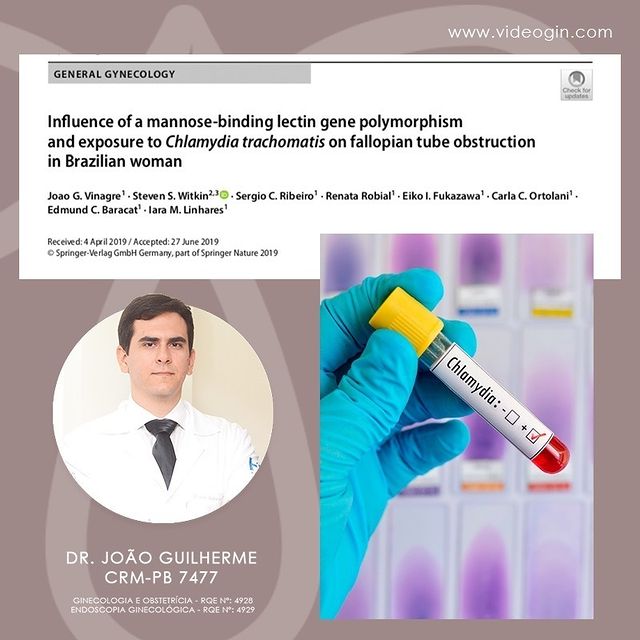
O ano 2019 foi de grande crescimento para a VideoGin. O Dr. João Guilherme Vinagre teve o privilégio e honra de contribuir com duas publicações internacionais em revista de grande impacto. Ele e seus colaboradores observaram, o que já é uma tendência na medicina e na ciência, que polimorfismos genéticos tem um grande papel na imunidade, incluindo o combate a infecções por bactérias com comportamento intracelular obrigatório, como é o caso da Chlamydia trachomatis. Seu estudo teve um curioso resultado, que mulheres com polimorfismos genéticos para uma proteína chamada mannose-binding lectin (MBL) tiveram suas tubas obstruídas (um dos desfechos de grande prejuízo à saúde reprodutiva da mulher) em proporção estatisticamente superior àquelas sem o polimorfismo específico, após o contato prévio à Chlamydia. Ficou interessada(o)? Segue o resumo do trabalho!
Factors influencing fallopian tube occlusion in women with a lower genital tract infection remain incompletely elucidated. We evaluated whether a polymorphism in the mannose-binding lectin (MBL) gene at codon 54 influences the occurrence of fallopian tube blockage in relation to exposure to Chlamydia trachoma’s. .
Methods
In a case–control study at The Hospital das Clínicas, University of São Paulo, Brazil, 75 women with hysterosalpingography-documented tubal occlusion and 75 women with patent fallopian tubes were analyzed for detection of single-nucleotide polymorphism in codon 54 of the MBL gene and for IgG anti-C. trachomatis antibodies in their sera. Both groups were matched for age, race, and sexual variables. .
Results
Prior exposure to C. trachomatis, as evidenced by the presence of IgG antibodies, was comparable in both groups. Detection of the polymorphic MBL allele was more prevalent in women with blocked tubes (p < 0.01), regardless of whether or not there was evidence of prior chlamydial exposure.
.
Conclusion
The level of MBL-related innate immunity influences the consequences of infection by C. trachomatis or other microbes.


